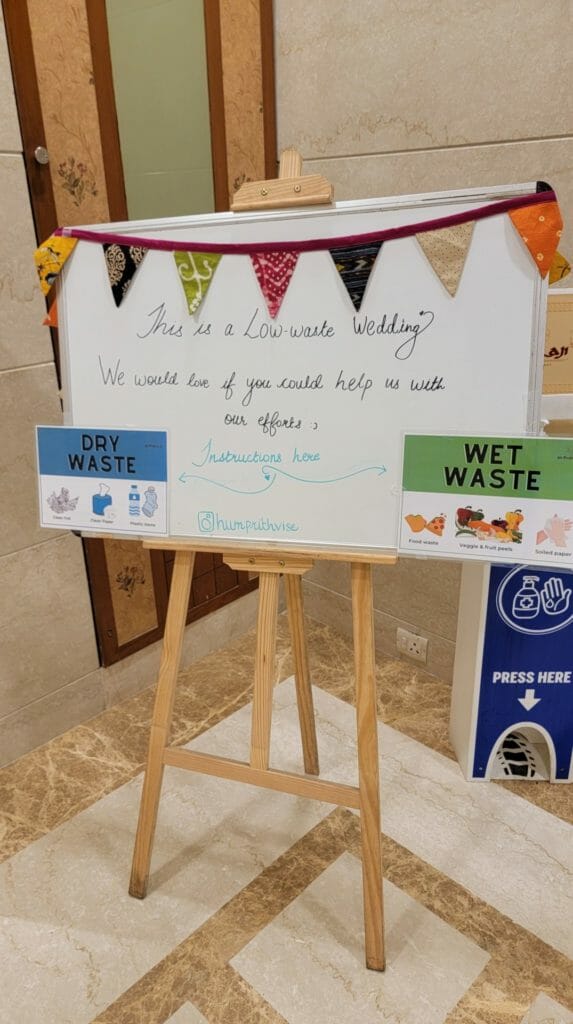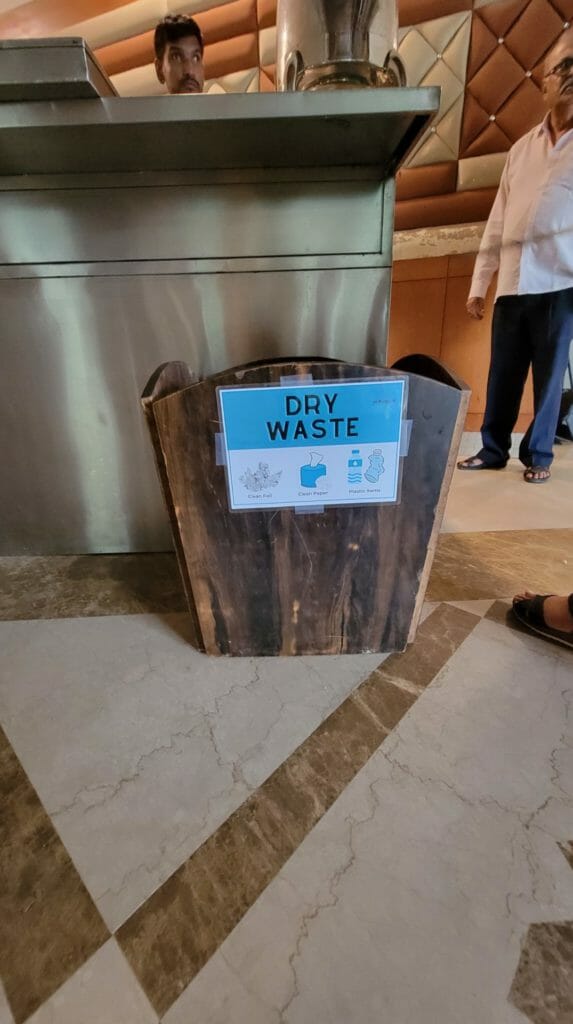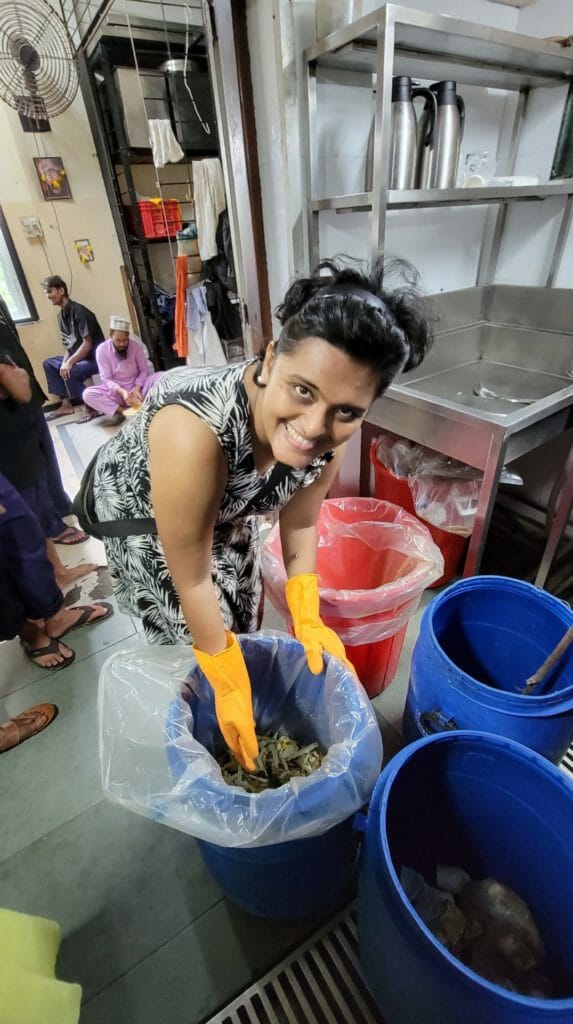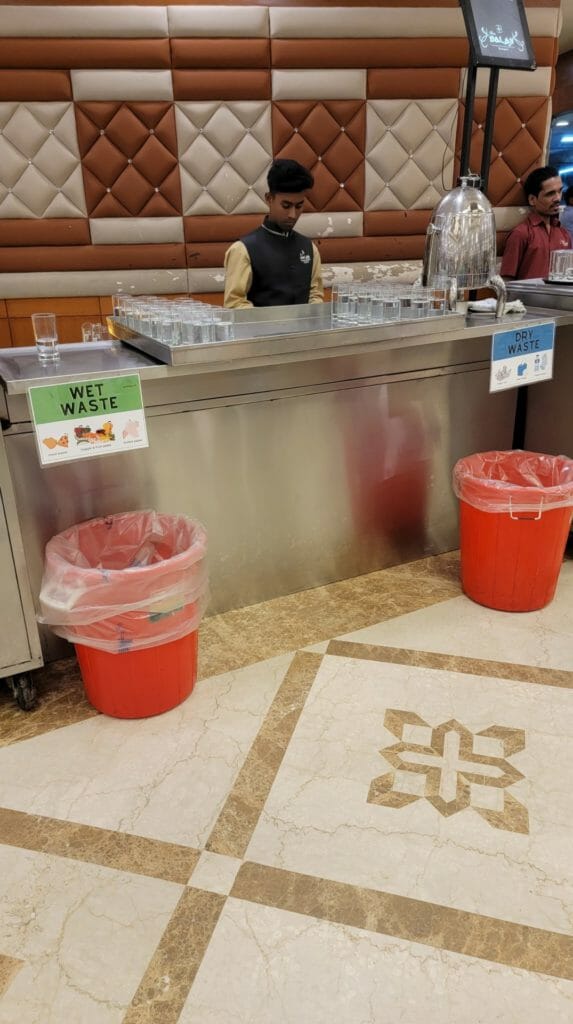In 2019, Mehndi and Pooja, as part of their low waste journey from the हम Prithvi से, a social enterprise, visited a doctor practising near the Deonar dumping ground in Govandi. While it was known that the lives of people living around the dumping ground are poor, what they heard was quite heartbreaking.
The doctor had been practising there for over a decade. He mentioned that he observed a rise in cases related to air pollution in the past few years. The reason is the rising quantity of dumped waste around and the toxic fumes from the hazardous waste especially after being burnt.
He said that kids as young as 10 years old had to use nebulisers due to respiratory issues. Not just air, he emphasised that the water and soil of the area were also highly polluted. Air and water-borne diseases are making people sick. But the foul smell coming out of the dumping ground had kind of stopped. The reason he said was deodorisers being sprayed on the waste. The waste being dumped has only increased since they met him, more so with COVID-19-induced lockdowns imposed in the last two years.

According to the estimates of the Central Pollution Control Board (CPCB), Mumbai and Delhi generate about 11,000 and 8,700 tonnes per day of solid waste respectively. While it is important to segregate waste at source and treat it as needed, managing waste during the festival season especially is highly important. The quantity of waste produced at celebrations or events is huge. If we can manage that, we can stop a good part of our waste from reaching the dumping grounds.
We can ensure that festivals such as Diwali, Ganpati, Navratri and Christmas, or even regular occasions such as birthday parties, festivals, annual day functions, weddings and other large gatherings, are celebrated in a way that minimises the waste generated.
Read more: Explainer: Segregating waste manually to minimise the burden on landfills
It is estimated that one in three households in India spends an estimated ₹10,000 during the Diwali season, of which a majority of the money is spent on disposable, one-time use decor, new clothes, unsustainable gifting options most of which are all either made of plastic or plastic packaging. There are many easy fixes to celebrating festivals in an eco-friendly and therefore people-friendly manner.
What are low–waste events, and what is the problem with partying like we currently do? These two questions often arise when discussing the need for low-waste events with friends and family.
Amid our celebrations, we forget that we’re contributing to the intense pollution problem that affects us all. The climate crisis is real and personal, so it’s only fitting that we celebrate life’s joys more mindfully. Is it time to take thoughtful action instead of being ignorant and overlooking the waste we generate?
So what is the problem with conventional party planning?
All the regular party decor and supplies we use – balloons, plastic glitter, confetti, single-use plastic cutlery, bottled water, thermocol etc. are made of plastic or plastic derivatives. Therefore, these items are non-biodegradable and harmful to nature and us.
The party hangover may end the following day, but this non-biodegradable waste hangs out in our surroundings for centuries. Balloons pollute the water bodies and end up killing marine animals. The tiny plastic glitter and confetti particles also pollute our water bodies and soil, and we also ingest these while partying.
And how can we forget that conventional parties with all this unnecessary decor and supplies often burn a hole in our pockets? They are expensive as well.
Organising parties in a low-waste and Earth-friendly manner is undoubtedly better for the environment and our pockets. Also, it creates room to get creative with one’s party planning!
So, how does one party in a planet-friendly way? See some tips below:
- Start by listing out all the items and supplies you’ll need to make your party a smashing success. These are likely to include invitations, cutlery and crockery, decor, food, gifts and party favours.
- Get creative, channel your inner dadi or nani and think about how they would celebrate occasions back in the day.
- Now, it’s time to get cracking and take action. Choose e-invites or seed paper invites instead of the regular kind. Opt for rented/ borrowed steel crockery and cutlery over single-use ones. Many cities in India now have crockery banks – google this, and you’ll find many options. Borrow or invest in reusable decor items and materials such as buntings and banners. Use natural materials such as flowers and leaves to decorate your space. Ensure that any excess food is given to the needy through organisations like Robin Hood Army.
- Choose a theme that promotes eco-friendly and earth-friendly living, for example, a forest theme. Use your party as a conversation starter to encourage sustainability and climate change action.
- Encourage your friends and family to repeat outfits and avoid buying new clothes for the occasion.
- Set up a waste management and segregation station at your party in case any guests bring non-biodegradable items like plastic packaged gifts.
All parties require some planning, so why not plan keeping in mind your pocket and the planet too?




Read more: Explainer: A citizen’s guide to living sustainably in Mumbai
If organising an Earth-friendly party sounds overwhelming to you, don’t fret. Social enterprises like हम Prithvi से and SKRAP offer party and event planning services that can make your party planning process a tad bit easier. We can ensure that the decorative items and another packaging for food and water are minimal so that we don’t send out much waste to the dumping ground. This will further add to the problems being faced by those living around the dumping ground and also impact the sanitation workers who are involved in picking it up and sending it to the dumping grounds.
Events can become a platform to initiate conversations around waste management in particular and climate justice in general. At the same time, planning low-waste events can be a fun-filled and learning experience. Let’s party without causing too much harm to the planet!
This is great. Thanks for writing this article.
To make it more likely to spread as a practice, can you please also provide a short visual summary?
Maybe you already created one for Twitter or somewhere. But a summary diagram is a must if you want this to spread widely to practice.
Thanks